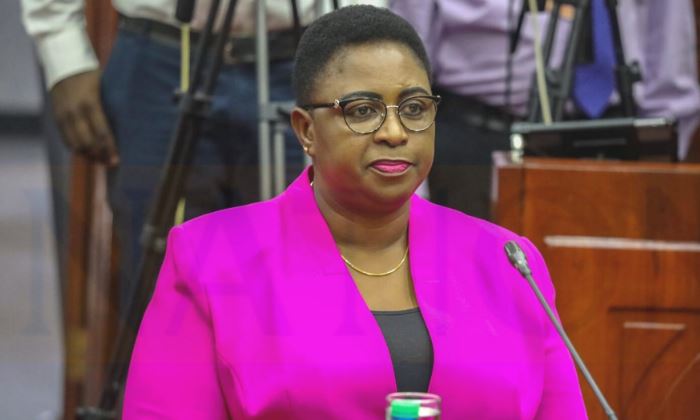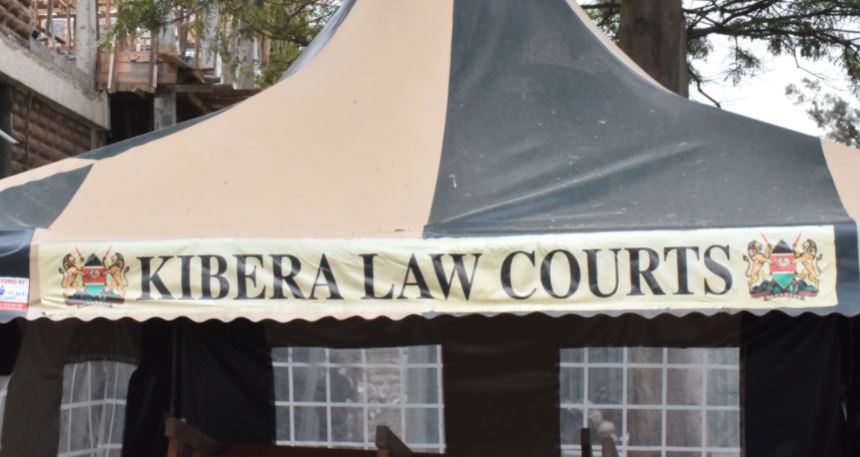
This week, a parliamentary committee headed by the speaker of the national assembly is vetting the nominees for the positions of cabinet secretary in President Rutos government.
The exercise is meant to evaluate the suitability of the nominees to serve in the positions the president proposed them to fill.
The members of the committee have so far asked many questions, ranging from professional to personal inquiries to try and establish the character and professional qualifications of the nominees.
However, Kenyans have taken particular interest in the answers they are providing to one question: “How much are you worth?”
The nominees have thrown around all kinds of figures, ranging from Mudavadi’s KSH 4 billion to Aisha Jumwa’s KSH.100 million.
These figures are meant to aid in the fight against corruption by establishing public servants’ net worth before and after serving in government positions to allow investigators notice and question unexplainable wealth increases.
However, the way the parliamentary committee is going about establishing nominee’s wealth is futile at best. There is no way for it to establish whether they are telling the truth, and if this is impossible to do, then these figures cannot be used effectively to fight corruption.
Therefore, there is a need to establish a new way for evaluating people’s net worth, and the best way to do that would be through investigative reports from government agencies.
Applying this strategy would allow the committee to establish facts and make informed decisions, prevent unwanted ripple effects in our public service, and allow Kenyans to understand their cabinet secretaries better.
Establishing Facts
Asking the NIS to investigate nominees the moment the president nominates them would allow the committee to establish facts about their wealth, professional, and character information. The current method of asking nominees for this information is ineffective because it creates a room for exaggerations and lies.
For instance, a wealthy nominee might downplay their net worth to prevent questions as to how they have they acquired it and when.
On the other hand, a cabinet nominee might exaggerate it to allow them leeway to acquire more wealth through corruption.
For instance, a nominee worth one hundred million might exaggerate it to KSH 400 million to allow them accrue more wealth without raising suspicion as to how they did it within such a short period of time.
Therefore, the best way to get this information is by asking investigative agencies, in collaboration with accountants and auditors to value this individuals independently way before they appear before the committees.
This way, it would be able to establish facts and use them to make more informed decisions.
Preventing Unwanted Ripple Effects in the Public Service
Considering these reports would help prevent unwanted ripple effects in the public service.
If the committee makes decisions using information provided by the nominees, rather than facts collected by investigative bodies, it risks approving unqualified nominees and promoting a corruption culture in the public service.
If corrupt leaders are approved as nominees, they are likely to continue stealing from the public and promoting impunity in the public service.
Further, their subordinates are likely to follow suit because there is no authority to investigate and punish them accordingly.
On the other hand, if the committee uses these reports, they would make decisions in a factual manner, helping to ensure the right people occupy the right offices.
In turn, these people would help minimize corruption in their ministries, and in the entire public service by extension.
Therefore, parliament should consider adopting this strategy.
Allowing Kenyans to Understand their Cabinet Secretaries Better
These reports would also allow Kenyans to know and understand their cabinet secretaries better.
The vetting process has been live on all the major local TV stations, allowing Kenyans to follow and ask questions through their members of parliament if present.
Whereas it is meant to make the process transparent, depending on nominees to provide information about themselves prevents the public from knowing their potential cabinet secretaries better.
Nominees can take advantage of the lack of investigative reports to lie about their wealth, among other things.
On the other hand, if the committee uses these reports, Kenyans would be able to establish facts about the wealth of their leaders, including their businesses and properties to promote public discourse and possibly electoral decisions.
Therefore, it would be best to use them to vet nominees.
Conclusion
This week, parliament is vetting nominees for the positions of cabinet secretaries, and one of the questions it is trying to establish is their net worth to aid in the fight against corruption.
To get this information, it is asking them to provide their own assessments, creating room for exaggerations and understatements.
To curb this problem, parliament should consider using investigative reports from investigate agencies and other government bodies to evaluate their wealth way before they appear before the committee.
Adopting this strategy would provide parliament with facts, avoid unwanted ripple effects in the public service, and help Kenyans to understand their leaders better.
Therefore, parliament should consider implementing it to improve its vetting processes to ensure better outcomes.
Githae Mwangi is a political and current affairs commentator








